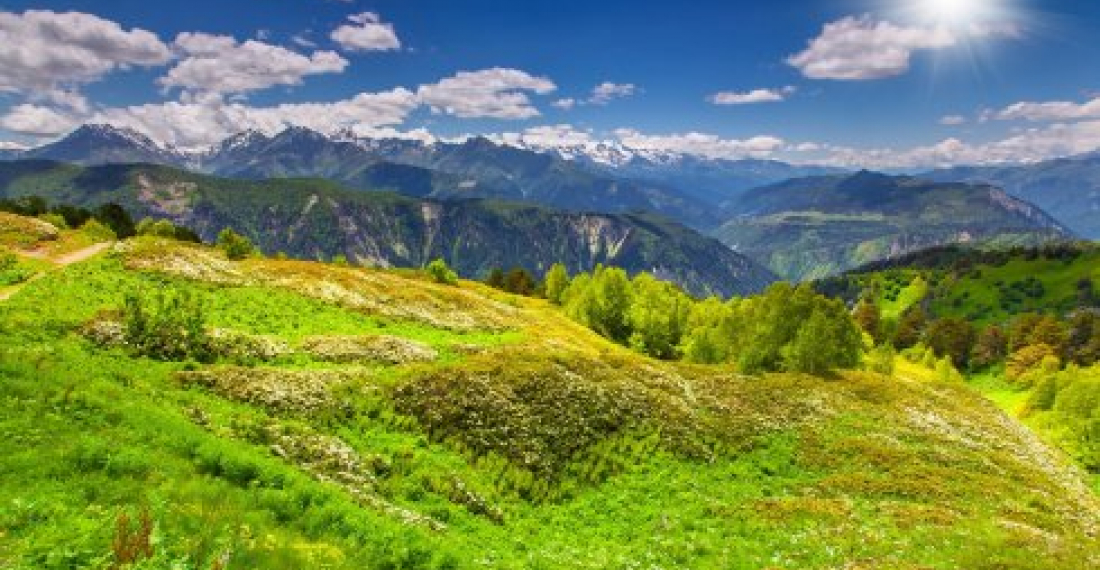A group of around ninety peace-building activists from the South Caucasus and from across the world have issued a statement on the ongoing fighting in the Nagorno-Karabakh conflict zone. In their statement they warn about the risk of destabilisation throughout the Caucasus and of a new humanitarian crisis.
The following is the text of the statement in full:
As people actively engaged in promoting peace in the South Caucasus, we are extremely alarmed about the escalation of hostilities around Nagorny Karabakh and the resulting deaths of peaceful civilians.
We speak out in support of our Armenian and Azerbaijani friends and colleagues, and to all those who, understanding the catastrophe of war for ordinary people, have persistently sought ways to further peace in the most difficult circumstances and unfavourable political and geopolitical conditions.
We are deeply concerned that without an immediate end to hostilities, there is a risk of further destabilisation throughout the Caucasus and of a new humanitarian crisis.
It is regretful that existing instruments and mechanisms for the regulation of the conflict have been unable to avert this military escalation and that it hasn't proved possible to enforce the ceasefire, let alone conclude a peace agreement.
Efforts invested in objective investigations of border incidents and assessments of provocative acts have proved insufficient. There has been insufficient deployment of the full range of international tools to encourage the conflicting parties to adopt peaceful solutions.
These bloody conflicts in the Caucasus emerged with the collapse of the Soviet empire nearly 30 years ago, but today we are living in different times. The inertia of this violence must not be allowed to be passed on to the next generations along with the hatred, destruction and war.
Today, the interdependence of people from different countries is increasingly felt, whether in terms of energy, clean water, climate change or pandemics. All the more dangerous and unacceptable then is the crude clarification of relations between conflicting parties through the use of force.
New times require new approaches - maybe not so quick and simple, but more peaceful, humane and long-term.
Understanding the complexity and danger of the current situation, we still hope that people of goodwill will prevail over the inertia of war and find a way to a just and sustainable peace.
We call on all parties, including the international community, to take decisive measures to end hostilities and to begin a new phase of the peace process.
The statement is signed by:
Abramashvili Ivane
Agrba Indira
Akaba Natella
Akhvlediani Margarita
Alborova Dina
Allen Susan
Aptarashvili Ketevan
Bagatelia Azamat
Barchan Inna
Bendeliani Eliko
Bendianishvili Zurab
Benia Laura
Boden Dieter
Broers Laurence
Chankvetadze Natia
Chemia Maya
Chkadua Ibrahim
Clogg Rachel
Cohen Jonathan
Darbinian Rafael
de Waal Tom
Dziapshipa Anna
Elbakidze Marina
Gabaeva Zalina
Gamakharia Alla
Garb Paula
Garzkiya Madina
Gegeshidze Archil
German Rosita
Gezerdava Said
Ginosyan Narine
Gumba Tsiza
Gurgulia Manana
Inal-Ipa Arda
Javakhishvili Jana
Jenkins Maurizia
Jenkins Richard
Jinjolia Maktina
Jishkariani David
Kakachia Medea
Kalandarishvili Nino
Kanashvili Giorgi
Kartozia Naala
Kelekhsaeva Irina
Kerselyan Diana
Kharashvili Yulia
Khashig Inal
Khubayeva Anna
Khvadagiani Irakli
Kobakhia Batal
Kobakhia Elena
Kozaeva Lira
Kulumbegova Lina
Kuvichko Elena
Kvarchelia Liana
Ladaria Aida
Lomiya Asida
Marshania Rusiko
Meskhishvili Tsira
Milorava Nukri
Mirziashvili Mikhail
Mchedlishvili Grigol
Nadiradze Natia
Nagai Marina
Nanuashvili Ucha
Oliphant Craig
Pagava Marina
Parastaeva Lana
Pataraya Angela
Pertanava Lali
Pipia David
Pirtskhalava Eka
Pochkhua Marina
Pugsley Sophia
Schofield Juliet
Shtykova Natalia
Shirokova Maya
Shvelidze Shota
Sotieva Larissa
Sovakar Mira
Tabueva Nelly
Tania Astamur
Tkhagushev Alkhaz
Topchian Marietta
Tsikhistavi-Khutsishvili Nina
Tsindeliani Merab
Tskhovrebov Alan
Tskua Tsiala
Tsnobiladze Maka
Tugushi Lasha
Turava Elona
Turtseva Bella
Venediktova Nadezhda
Yanovskaya Irina
Zakareishvili Paata
source: commonspace.eu
photo: The Caucasus Mountains (archive picture)






